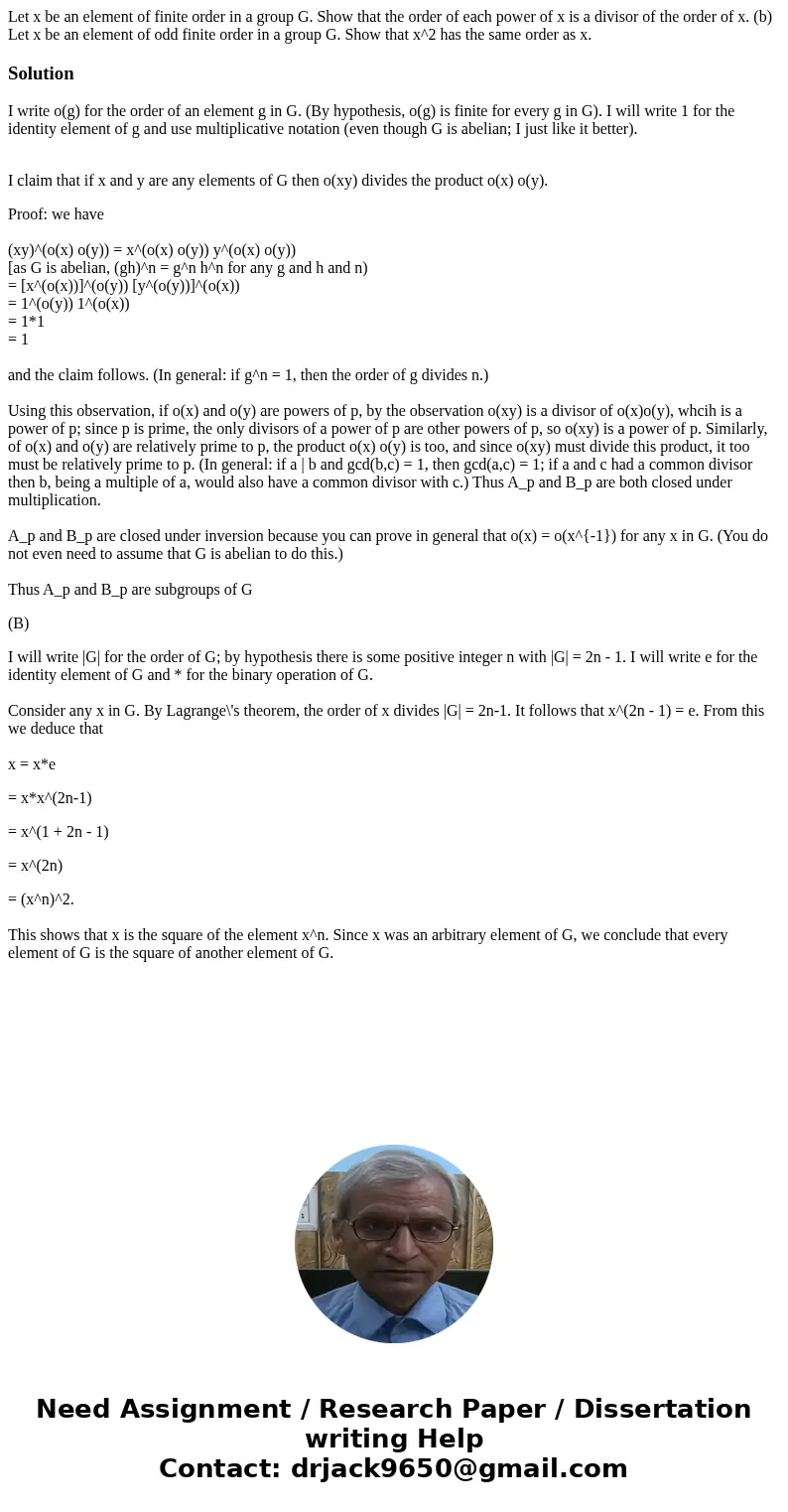Let x be an element of finite order in a group G Show that t
Solution
I write o(g) for the order of an element g in G. (By hypothesis, o(g) is finite for every g in G). I will write 1 for the identity element of g and use multiplicative notation (even though G is abelian; I just like it better).
I claim that if x and y are any elements of G then o(xy) divides the product o(x) o(y).
Proof: we have
(xy)^(o(x) o(y)) = x^(o(x) o(y)) y^(o(x) o(y))
[as G is abelian, (gh)^n = g^n h^n for any g and h and n)
= [x^(o(x))]^(o(y)) [y^(o(y))]^(o(x))
= 1^(o(y)) 1^(o(x))
= 1*1
= 1
and the claim follows. (In general: if g^n = 1, then the order of g divides n.)
Using this observation, if o(x) and o(y) are powers of p, by the observation o(xy) is a divisor of o(x)o(y), whcih is a power of p; since p is prime, the only divisors of a power of p are other powers of p, so o(xy) is a power of p. Similarly, of o(x) and o(y) are relatively prime to p, the product o(x) o(y) is too, and since o(xy) must divide this product, it too must be relatively prime to p. (In general: if a | b and gcd(b,c) = 1, then gcd(a,c) = 1; if a and c had a common divisor then b, being a multiple of a, would also have a common divisor with c.) Thus A_p and B_p are both closed under multiplication.
A_p and B_p are closed under inversion because you can prove in general that o(x) = o(x^{-1}) for any x in G. (You do not even need to assume that G is abelian to do this.)
Thus A_p and B_p are subgroups of G
(B)
I will write |G| for the order of G; by hypothesis there is some positive integer n with |G| = 2n - 1. I will write e for the identity element of G and * for the binary operation of G.
Consider any x in G. By Lagrange\'s theorem, the order of x divides |G| = 2n-1. It follows that x^(2n - 1) = e. From this we deduce that
x = x*e
= x*x^(2n-1)
= x^(1 + 2n - 1)
= x^(2n)
= (x^n)^2.
This shows that x is the square of the element x^n. Since x was an arbitrary element of G, we conclude that every element of G is the square of another element of G.

 Homework Sourse
Homework Sourse